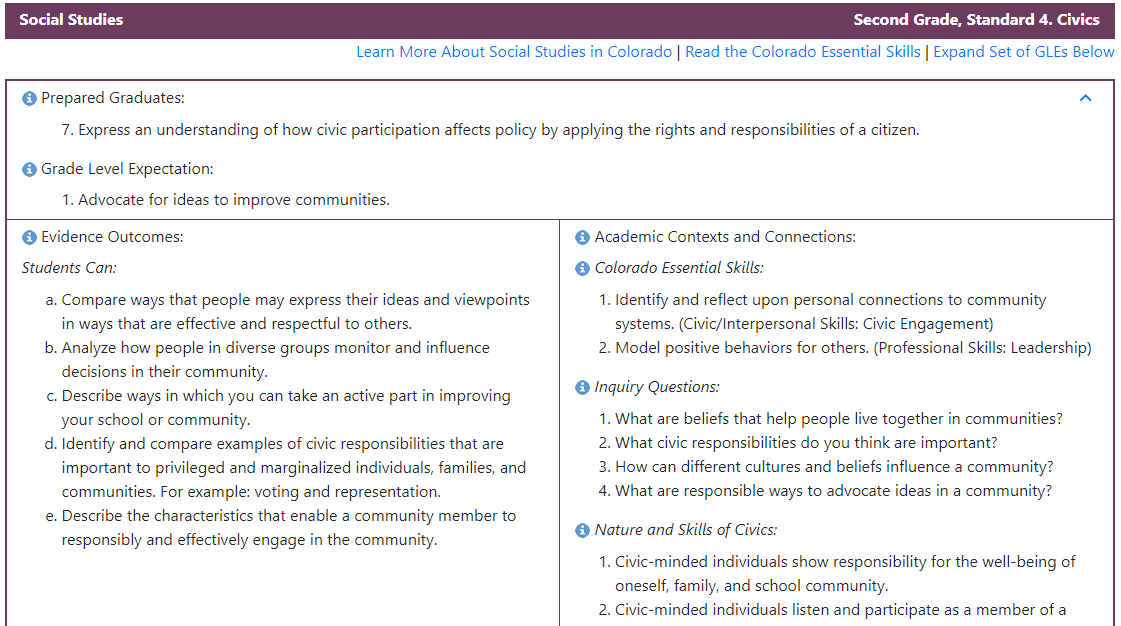The unit goal that I would like to discuss for this entry is:
Identify and compare examples of civic responsibilities that are important to privileged and marginalized individuals

This goal connects directly to my students as they pertain to a variety of marginalized communities in many different ways. This sociological lens can lead to some exploration of intersectionality as well as give a very real example of what kinds of ways students feel their civic responsibilities prompted by the things happening in the world. Circling back to the context for learning and other observations of my students, there are many ethnicities, races, languages, and family structures represented in the classroom, meaning students have many communities they pertain to and can give their idea of what community interests they perceive in those circles.
I think back especially to a moment in which a student told me that he and three other kids in the class cannot watch the indoor recess movie if it was on Disney+. In my head, I immediately thought about the boycotts, but wanted to hear this student speak on why he said that, they could all just be afraid of Disney characters or think it's childish for all I know. He told me, "well we're all Muslim, and Disney supports Israel".
This moment proved to me that students in fourth grade have a sense of responsibility when things around the world are happening, and identify as parts of a community, in this case pertaining to a religion. While planning, I knew that this goal from the standards, and another that I came up with, were going to be quite high in terms of cognitive demand, but this experience with my students shows that they are ready for this. The cognitive demand of the goal resides in the evaluating piece, but students are already creating in terms by this concept by doing something huge- participating in a boycott.
The language necessary to engage in this learning and the discussions that will inevitably sprout from it needs to include conditional phrases, which students at all levels, but especially emerging bilinguals, will need explicit instruction on. A lot of those higher cognitive demands need students to think in the hypothetical. All four areas of language domains will be used, but for those higher cognitive demand goals, speaking and listening will be used the most. For the earlier and less cognitively complex goals, students will be writing and reading. Reading especially is an important domain as the unit is centered around literary texts.
Unit/Lesson Planning Reflections
The most important thing I have needed to consider when facing unit planning has been the cohesiveness of goals and the need to establish the right "Big Ideas" to explore. For me, essential questions have been easier to approach as they set the stage for the pursuit that is meant to occur during a unit of study; however, I was not able to encompass what those questions were prompting students to engage with in a concise way. Now I have a better idea of doing this as well as an understanding of their importance in grounding learning as well as teaching.
This relates to lesson planning because all of the pieces, goals, essential questions, and big ideas that were planned out in a sequence according to task cognitive demand and concept complexity are there already. You just have a piece of the puzzle to focus on during each lesson because you have the bigger picture. Without the unit plan, there is no plan for learning. It is fine to modulate according to students' needs, but those changes are not easily made without a greater idea of what you students to be able to do or how you want them to engage.